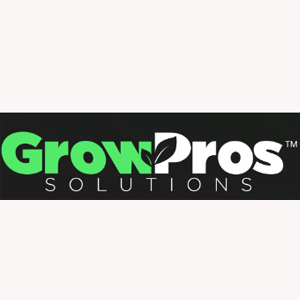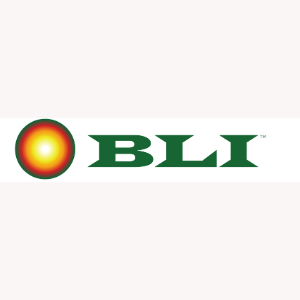\\\\ Top Cannabis Lighting Companies \\\\
\\\\\\\\\ Top Cannabis Lighting Companies \\\\\\\\\
-
Grow Pros Solutions
GrowPros Solutions is a grower-owned manufacturer of high-performance LED grow lights engineered for cannabis cultivation. With 25+ years of hands-on experience and in-house manufacturing, it delivers innovative, affordable lighting solutions, most notably under-canopy lighting, helping growers maximize yield, efficiency and ROI.
-
Boulderlamp
Boulderlamp combines expertise in physics and electrical engineering. It designs specialized lighting to support individuals with autism and assist the elderly. The company leads in sustainable agriculture, developing and manufacturing advanced Ceramic Metal Halide (CMH) and LED horticultural lights. It also features antimicrobial technology designed to optimize crop cultivation and increase yields.
-
Fluence
Fluence specializes in LED lighting solutions for cannabis cultivation. With decades of horticultural experience and advanced photobiology research, it develops products such as the SPYDR 3 and VYPR Series. Fluence's mission is to provide efficient, sustainable and science-driven lighting that helps commercial growers increase yields and enhance crop quality.
-
Fohse
As an expert in horticultural science and engineering, Fohse manufactures high-performance LED grow lights. It provides advanced, energy-efficient, and sustainable lighting solutions for both commercial and home-grown plants. Its products are designed to boost productivity to ensure healthier plants and higher yields. Fohse also provides cultivation consultations to help customers maximize their results.
-
TSRgrow
TSRgrow offers comprehensive solutions for commercial cultivation, specializing in LED lighting and remote power systems. The company's TOTALgrow Solution approach incorporates wireless sensors, data monitoring and expert consulting to assist cultivators in building and operating efficient facilities. With a strong emphasis on sustainability and energy rebates, TSRgrow serves as a strategic partner for long-term success.
More in News
Innovative Approaches Setting New Benchmarks in Cannabis Extraction
Friday, February 27, 2026
Fremont, CA: The cannabis extraction industry is rapidly evolving as new techniques and technologies emerge to meet growing demand and improve product quality. It focuses on enhancing efficiency, sustainability, and customization to appeal to the next generation of cannabis users. While butane and ethanol have traditionally been used in extraction processes, more effective and environmentally friendly methods are expected to gain popularity in the future. Solventless extraction methods, such as rosin and ice water, are becoming increasingly popular due to their purity and safety. High-pressure and temperature extraction techniques are emerging, potentially offering higher yields and faster extraction times while maintaining the integrity of cannabinoids and terpenes. Terpene isolation will also become more refined, allowing for tailored consumer experiences and more consistent products as the entourage effect between cannabinoids and terpenes is better understood. Automation and AI: Revolutionizing the Extraction Process As demand for cannabis products increases, the need for scalable and efficient extraction systems is accelerating automation across processing facilities. Robotics and AI-driven control platforms now enable tighter regulation of variables such as temperature, pressure, and cycle timing, improving batch consistency while reducing material waste. Logistics-integrated supply models, similar to distribution coordination approaches seen in MMM Transport, also highlight how synchronized movement of raw materials and finished extracts can improve throughput efficiency across multi-site operations. AI-based optimization tools further support real-time process adjustments based on biomass characteristics or targeted cannabinoid outcomes, enhancing production precision. Sustainability: Toward an Eco-Friendly Cannabis Industry With cannabis cultivation and extraction processes becoming more widespread, the environmental impact of these industries will come under greater scrutiny. In response, the future of cannabis extraction will likely focus on sustainability, with a greater emphasis on eco-friendly methods. Solventless extraction technologies could reduce reliance on harmful chemicals, and more sustainable solvents, such as food-grade ethanol, will become more common. Innovations like closed-loop systems, which recycle solvents, and adopting renewable energy sources in extraction facilities will also help minimize the ecological footprint of the cannabis industry. Phycoterra’s work in biological input optimization reflects how sustainability-focused innovation is influencing resource efficiency strategies across agriculture-linked processing industries, including cannabis extraction ecosystems. The future of cannabis extraction will likely see a shift toward more personalized products, enabling consumers to select products based on specific cannabinoid and terpene profiles that meet individual needs. Advancements in extraction techniques will allow manufacturers to create highly customized products for medical use, offering precise formulations for conditions like chronic pain or anxiety. As consumer demand for unique, tailored experiences grows, new products such as targeted edibles, beverages, and topicals will emerge, each designed to deliver specific effects based on the extracted compounds.
Exploring the Latest Technological Trends in Cannabis Testing
Friday, February 27, 2026
The technological advancements in cannabis testing have significantly improved the accuracy, efficiency, and reliability of analyzing cannabis products. FREMONT, CA: As the cannabis industry continues to expand and evolve, ensuring the safety and quality of cannabis products has become paramount. Technological advancements have played a crucial role in revolutionizing cannabis testing, enabling more accurate and efficient analysis of cannabinoids, terpenes, contaminants, and potency levels. High-Performance Liquid Chromatography (HPLC): High-performance liquid chromatography (HPLC) has long been a staple in cannabis testing laboratories. However, recent advancements have made it more versatile and precise. HPLC allows for the separation, identification, and quantification of various cannabinoids and terpenes, providing crucial information about the chemical composition of cannabis strains. Modern HPLC systems offer enhanced sensitivity, shorter analysis times, and improved resolution, allowing for more accurate and efficient testing. Gas Chromatography-Mass Spectrometry (GC-MS): Gas chromatography-mass spectrometry (GC-MS) is another powerful analytical technique used in cannabis testing. GC-MS enables the detection and identification of volatile compounds, such as pesticides, residual solvents, and mycotoxins. Recent advancements in GC-MS technology have led to faster analysis times, increased sensitivity, and improved compound identification capabilities. This allows for more comprehensive and reliable screening of contaminants in cannabis products. Portable Testing Devices: The demand for on-site and real-time cannabis testing has led to the development of portable testing devices. These handheld devices utilize various analytical methods, including spectroscopy and immunoassays, to quickly determine the potency, quality, and safety of cannabis products. Portable testing devices are especially valuable for law enforcement agencies, regulators, and cultivators who require immediate results without the need for extensive laboratory infrastructure. DNA-based Testing: Advancements in DNA-based testing have revolutionized cannabis strain identification and authentication. By analyzing the unique genetic profiles of cannabis strains, DNA-based testing can accurately determine the origin, lineage, and genetic stability of different cultivars. This technology helps prevent mislabeling and counterfeit products, ensuring consumers receive the exact strain they intend to purchase. Artificial Intelligence (AI) and Machine Learning: The integration of AI and ML algorithms in cannabis testing has significantly enhanced data analysis and interpretation. These technologies can process large datasets, identify patterns, and provide valuable insights for quality control and product development. AI-powered systems can also assist in predicting cannabinoid profiles, optimizing cultivation practices, and streamlining regulatory compliance.
The Health Benefits of Cannabis Drinks
Thursday, February 26, 2026
Fremont, CA: As more states and countries legalize cannabis, its popularity continues to rise. Known for its therapeutic properties for centuries, cannabis has now expanded into a variety of consumption methods. Cannabis-infused beverages, offering a unique and enjoyable way to consume cannabis, have become increasingly available. From refreshing sodas to soothing teas, these drinks offer distinct advantages and a pleasant taste. Here are 7 key benefits of cannabis beverages: Precise Dosage The ability to offer accurate dosage is one of the main benefits of cannabis beverages. Cannabis beverages are available in pre-dosed doses, which makes it simpler to regulate the amount of cannabis you take than other cannabis ingestion methods like smoking or edibles. Faster Onset Drinking cannabis causes it to enter your circulation through your digestive tract instead of your liver, which hastens the onset of effects. This is especially helpful for people who would rather have an experience right away and not have to wait for the effects to take effect. Discreet Consumption Drinks made from cannabis are an excellent choice for people who want to use cannabis discreetly since they provide a covert way to take the plant. Cannabis drinks have no smell, so it's easy to consume them in public places without drawing attention, unlike smoking or vaping, which can leave behind detectable odors. Versatility Drinks made with cannabis are very customizable and available in a wide variety of tastes, kinds, and potencies. Cannabis drinks come in various flavors to suit different palates, such as fruit punch, calming tea, or refreshing soda. You can select a cannabis drink from this selection according to your tastes and intended effects. Reduced Health Risks Cannabis drinks present a lower risk to your respiratory health when compared to smoking or vaping. Inhaling smoke or vapor from cannabis cigarettes exposes your lungs to dangerous pollutants; on the other hand, cannabis drinks offer a safer option. Those with lung health concerns or respiratory ailments may find this especially helpful. Hydration Numerous cannabis beverages are made with hydrating components, including herbal teas, coconut water, or water, which might aid in the body's fluid replenishment. Drinking enough water is essential for good health, and cannabis drinks offer a cool, hydrated experience along with the advantages of cannabis. Wellness Benefits Cannabinoids like CBD found in cannabis can improve wellness, which is why cannabis drinks may be beneficial. CBD is well-known for its possible medicinal benefits, which include its capacity to ease pain, encourage relaxation, and lower anxiety. CBD can be a simple and practical approach to including it in a wellness regimen.
The Role of Cultivation Limits in Cannabis Availability
Thursday, February 26, 2026
FREMONT, CA: The conversation surrounding cannabis has significantly evolved. The range of cannabis use is extensive, and the line between medical and recreational use is often blurred. Cannabis can serve as a self-medicated treatment that offers relief based on personal preference rather than relying solely on pharmaceutical drugs. Both individuals with a prescription for medical cannabis and adults seeking recreational use participate in this emerging market. The reasons for using cannabis vary widely, from a basic desire to relax to a deeper quest to alleviate various symptoms and disorders. Cannabis encourages individuals to explore its potential in a way that is unique to them, situated at the crossroads of enjoyment and well-being. Cannabis use is a controversial topic due to its diverse cannabinoids and concentrations, with CBD approved for seizures and THC used for nausea and appetite in cancer patients. However, pain is another area where evidence is mixed. Patients report improved quality of life from cannabis use, and animal models show potential. Human studies are also mixed due to the variety of administration routes, including smoking, vaping, edibles, tinctures, and topicals, making it difficult to study rigorously. A randomized trial is almost needed for every indication and product combination. Cannabis use disorder is a legitimate disorder in the DSM, but problematic use can lead to mental health consequences. Those with a family history of psychosis or schizophrenia should avoid using cannabis early in adolescence. Cannabis can trigger psychotic symptoms and potentially long-lasting problems. It's difficult to study if cannabis helps manage early negative symptoms of schizophrenia and if the impact of cannabis on the developing brain could increase the risk of using other substances later or finding them more reinforcing. Legalizing cannabis can significantly improve public health by removing it from the illegal underground market and allowing legitimate businesses to handle it. This ensures product quality control and labeling, reducing the risk of over-policing. While the current labels are variable, they are making progress. Legalizing cannabis can also help reduce the criminalization of communities of color and minorities, as drug laws have historically criminalized these groups. Overall, legalizing cannabis can significantly improve public health.
Common Myths About Accounting in the Cannabis Industry
Thursday, February 26, 2026
FREMONT, CA: The legal cannabis, CBD, and hemp industries are expanding rapidly across the country, with several proposed federal legalization bills currently under discussion. In a nation divided on nearly every other issue, the widespread support for medical cannabis among Americans makes the swift move toward full legalization unsurprising. Minnesota is on the brink of legalizing cannabis for adult use. While some states initially take cautious steps, the growing benefits, such as increased employment and tax revenue for local governments, are driving greater demand and accelerating the push for broader legalization. With federal cannabis legalization in uncertainty and individual states authorizing cannabis sales and production, professionals such as CPAs find themselves in a difficult position. On the one side, cannabis businesses require accounting support to remain compliant and maintain their licenses.The truth is that thousands of businesses are springing up all over the place, and there aren't enough qualified accountants to go around. The primary misconceptions around offering accounting services to the cannabis and CBD/hemp sectors are listed below: This is the "all-cash" industry. Actually, credit unions and banks serve cannabis businesses in various states. Businesses generate a large amount of cash. Thus, cash controls and processes are crucial for preventing fraud and theft. Furthermore, many cannabis business owners possess two to ten non-cannabis firms, such as a real estate or equipment company, which have better access to finance. The federal government is now reviewing the SAFE Banking Act, and cannabis businesses should soon have simpler access to banking and merchant services. Cannabis must be a terrible "niche" for CPAs: There are currently very few CPAs in the niche, so there is a huge opportunity. Many surveys have shown that solo CPAs suffer the most when obtaining exceptional clients, and if that's the case for specific companies, this could be their opportunity to discover high-paying clients effortlessly. Many people will spend in the six figures for world-class accounting, tax, and CFO services. When one considers that a modest mom-and-pop cannabis firm, whether a farm, dispensary, or vertical integration, can soon grow to a $10-$20 million company, these clients are willing to pay high prices for reliable accounting and tax services. Cost accounting is complex, and the founders and investors value accuracy.
Essential Elements of Effective Co2 Cannabis Extraction
Thursday, February 26, 2026
Fremont, CA: The cannabis and hemp sector has seen significant growth in recent years, primarily due to global legalization and decriminalization efforts. As the demand for high-quality cannabis and hemp products increases, there is a greater focus on advanced extraction techniques. Innovative technologies are improving the efficiency, purity, and sustainability of these processes, transforming traditional extraction methods. Cannabinoids and terpenes have typically been extracted from cannabis and hemp plants using solvents such as ethanol or butane, CO2 extraction, and steam distillation. While successful, these approaches frequently pose safety, efficiency, and environmental issues. Recent advances are tackling these difficulties, opening the path for more complex and sustainable extraction procedures. Supercritical CO2 extraction has long been widespread because of its capacity to create clean, high-quality extracts with no residual solvents. Recent advances in this field include: Precision Control Systems Modern CO2 extraction systems have advanced software and automation for exact temperature, pressure, and flow rate control. This accuracy improves extraction efficiency and consistency, producing optimal yield and quality. Inline Fractionation This approach enables the separation of various chemicals during the extraction process. By fractionating the extract inline, processors may isolate cannabinoids, terpenes, and other desired chemicals in a single run, saving time and money. Energy Efficiency Improvements Newer CO2 extraction machines are meant to be more energy efficient, with features such as heat recovery systems and advanced pump technology. This lowers operational expenses and lessens the extraction process's environmental impact. The future of cannabis and hemp extraction seems promising, with a slew of advancements set to alter the sector. From improved CO2 systems and solventless procedures to ultrasonic and microwave-assisted extraction, the environment is fast changing. As technology advances, we can expect more efficient, sustainable, and high-quality extraction processes to develop, propelling the sector ahead and fulfilling the rising demand for cannabis and hemp goods. Embracing these advances will be critical for processors that want to remain competitive and ecologically mindful in this changing industry.









